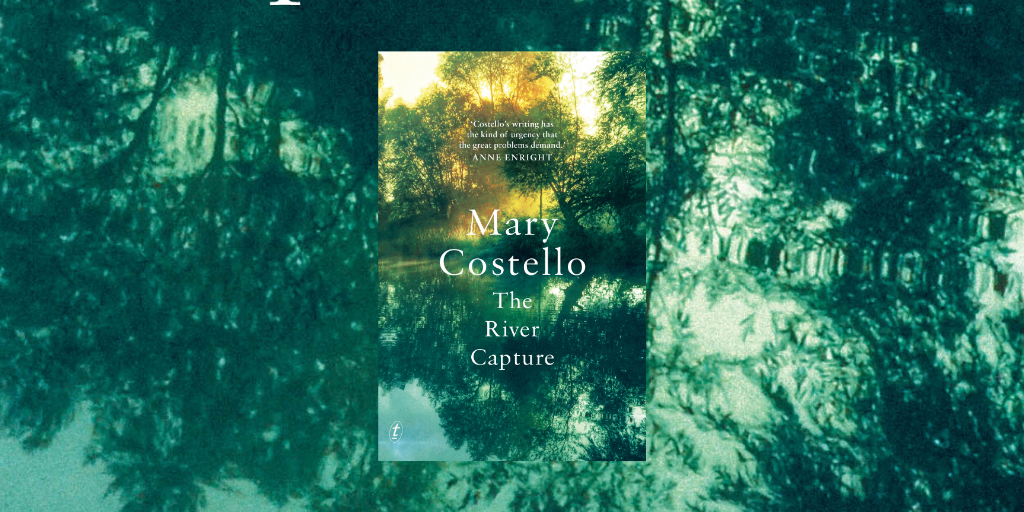
Mary Costello’s first novel, Academy Street, was shortlisted for a number of awards, and won the Irish Book of the Year Award in 2014. It also shares a lot thematically with her latest work. However, in her second novel, The River Capture, Costello has used a very different narrative style, and although providing some real shining moments and continuing to dazzle with her beautiful writing in this ode to James Joyce, the overall effect never quite lands. The novel has been announced as a shortlisted nominee for both the Irish Novel of the Year and the Bad Sex award, which may be the best indication of the two sides of this somewhat disjointed narrative.
Luke O’Brien lives in rural Ireland near the River Sullane, having left behind his academic life in Dublin to return to care for the family’s land, Ardboe, and his elderly relations, especially his Aunt Ellen. He lives a simple life in the slow, small rural Irish setting, surrounded by his books and his consistent ruminations of his beloved James Joyce and Ulysses.
His dedication to his family and his inner conflicts between rural life and his academic responsibilities in Dublin set the background for most of the early parts of the book, along with the spectres of his recently deceased Aunt Josie and Aunt Una who tragically died on the land at a young age.
This is until Ruth Mulvey appears one day on his doorstep and Luke may finally have found the love, escape from loneliness, and answers he so desires. As the two spend time together, the romance between them crescendos quickly, but when Luke’s Aunt Ellen reveals a dark secret from the past that led to Ellen’s own public ruin that links Luke’s family with Ruth’s, Luke is compelled to end things with Ruth in a very modern way, by email.
Here is where the story diverges and Costello transitions to a more experimental style. Separately this second half contains some of the strongest and most compelling reading, as Costello uses the question and answer section of Ulysses as a blueprint that she makes very much her own. This stylistic shift represents Luke’s descent as he meditates over various aspects of Joyce’s life and Ulysses instead of facing his fears regarding Ruth’s response. And though there’s some moving writing within, the deviation in style feels further than seems impactful and leaves the novel feeling almost incomplete.
Costello is at her strongest and reads as most comfortable when shifting styles or weaving elements of Joyce and nods to Ulysses within her own narrative that’s unfolding. But, the overall effect doesn’t quite have the impact that’s perhaps intended. Though an enjoyable read that has potential to pull real power through the stylistic flourishes, unlike streams that form a river, the narrative never quite joins together fluidly to full formation.
![]()
![]()
![]()
![]()
![]()
THREE AND A HALF STARS (OUT OF FIVE)
Mary Costello’s The River Capture is available now through Text Publishing.
